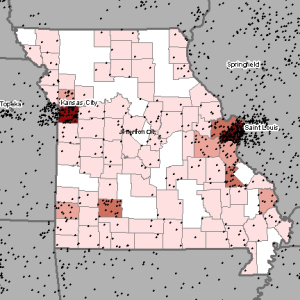
by pitzersnodgras | Apr 8, 2014 | Article
Pitzer Snodgrass recently obtained a dismissal of a case involving statutory co-employee claims, with the Court finding there was no duty owed. Plaintiff’s cause of action arose from an incident that occurred in 2010, while he was working at a trucking company’s...

by pitzersnodgras | Apr 7, 2014 | Article
Beginning on January 1, 2014, the Missouri Workers’ Compensation Act applies to mesothelioma and other toxic exposure. On July 11, 2013, Missouri Governor Jay Nixon signed Senate Bill 1, which amended the Missouri Workers’ Compensation Act, modifying the Act’s...




